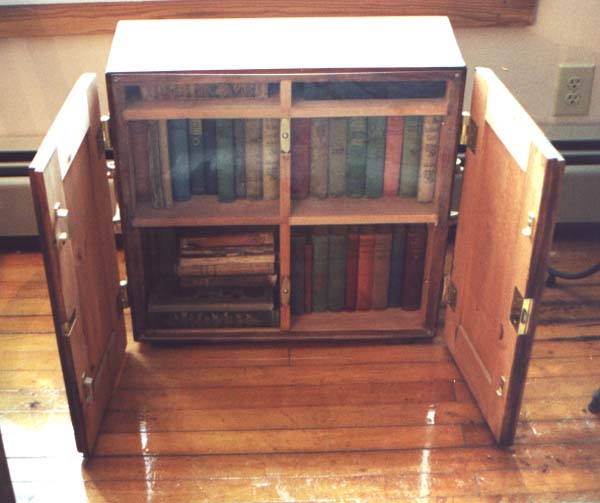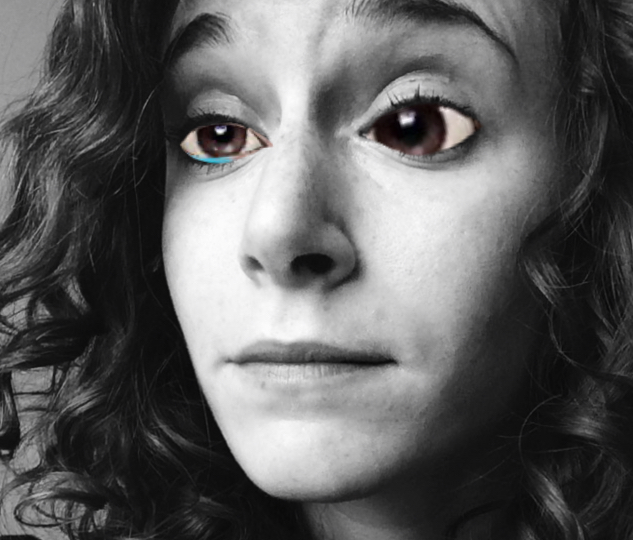
Bringing books to Paris
Actually all I was doing was packing for a two-week trip to Paris. I don’t like packing. I simultaneously want to be prepared for every contingency and to reduce my stuff to a clean, nomadic minimum. But the real bear, a lot of the time anyway, is the books. For this last round, I’d say I devoted nearly half of my time to weighing and shuffling and reconsidering the handful of novels and histories, criticism and pulp that would join me in France. The seriousness of the operation was not dented by the certain knowledge that I am unlikely to read all these books, which will probably be elbowed aside by other finds I will make in the book stalls along the quais or in the semi-grotty Shakespeare & Co. My bibliomaniac futzing grew so ridiculous and time-consuming that, in an effort to understand it and with the expectation that at least some of you out there have tasted this peculiar neurosis, I offer up this brief study.
The bibliographic items involved are probably besides the point, but because the net is all about useless information, here goes. Having just finished Dale Pendell’s fascinating conversational memoir Walking with Nobby, as well as having pitched an interview with the man for some lit journals, I wanted to read the third and most heavy-duty volume in his marvelous Pharmako series, an unrivaled (and practical) study of psychoactive drugs from angles literary, historical, philosophical, and chemical. It’s a handsome large paperback, so it weighed a lot and would undoubtedly get scuffed up, so though it was the cornerstone of the collection, the thickest and most useful read, it was plucked out late the last night and replaced with some Philip K. Dick novels I’ve been meaning to reread, before proudly reinstalled with only a few hours to go.
Besides the Rough Guide to Paris, the Green Guide to Brittany, and a blank book for sketches—I love to sketch while traveling, as it keeps me in the flow while helping my busy brain to calm down and actually look at things rather than restlessly consume novelties—I gave myself room for a few more. But how much is a few? My pal Ben says he doesn’t even bring books anymore, but he is wiser than I. I was aiming for about four paperbacks, but this still left with decisions regarding genre (classic fantasy, science fiction, old lit, new lit, history, philosophy, criticism, anything, uh, “French”) as well as individual items within the genre. Any number of hardbacks were rejected on the principal that it undermined one of the few bonuses of softcover books.
For the record, I settled on Tom McCarthy’s Remainder (new lit), Charles Stross’ Accelerando (SF), my own book Techgnosis (which I remembered at the last minute was the subject of my talk here and which I haven’t looked at in a couple years), and, since I intend to get all medieval on Paris’ tourist ass, the one-two punch of Panofsky’s Gothic Architecture and Scholasticism and Umberto Eco’s Art and Beauty in the Middle Ages, which he wrote in the 50s and which I consumed with great delight on the plane. The PKD books felt too much like work, and an old, dried-up, unread pocketbook of Roger Shattuck’s The Banquet Years, about Jarry and Satie and other belle époque weirdos, literally broke apart in my hands. I will not enumerate the rest of the almost-rans, except to say that they were numerous.
So why did this rather modest store take hours and hours to collect? Pondering this absurd waste of mental energy, I realized it was connected to another one of my eccentricities. At the end of the day, when I prepare to get into bed, I often have a ferocious desire to plunge into a fresh read, either a loved but long-since-read book or one of the scores of newbies that line the shelves and compose the piles. As the ever growing stack at bedside will attest, I regularly submit to this urge, even though I keep my eyes open for at most five minutes when I read in bed. (Poetry is the best solution.)
What’s happening here is that, in the case of both nighttime and travel, a part of myself releases the usual raft of daily demands on my brain, demands that, because I earn my keep from my reading and writing, usually crowd out the pure leisure with which those other mythical people presumably approach reading. I am done with the day’s work, or will temporarily interrupt the daily grind with travel, and so can read purely for pleasure. And because the opportunity is rare, I want to extract as much juice as possible.
But that’s not really it. Books are not just pleasure—they are new worlds, and new selves. Sources of pleasure alone do not exert such pressure, at least on me. I may fret a moment about whether I want a hoppy ale or a weissbrau, the latest downloaded BSG or an old Bresson film, but rarely for more than a minute or two. With books it is rather the promise of a fresh chance at identity that can leave me piling and unpiling and weighing the things, as if I were taking cuttings from an enormous nursery and preparing to plant the garden of my future life.
This perception echoes back to a kind of adolescent enthusiasm for life-changing books that is much tougher to sustain as a midrange adult. The apparently blank slate of a quiet night or a trip is a microcosm of such fresh starts somehow, giving rise to the fantasy of being able to craft a more nuanced and balanced plot of future growth, as if we, or I, could ever truly cultivate the self and not simply watch in amused alarm as it bumbles and stumbles through a shadowy valley of fallow fields, salty run-off, and the occasional four-leaf clover.
Last night, ensconced in a free apartment in Montparnasse, I could not sleep and so spent the wee hours parsing French bande dessinée, a Tintin ripoff starring Blake and Mortimer. I found it in the apartment, and it called to me.




